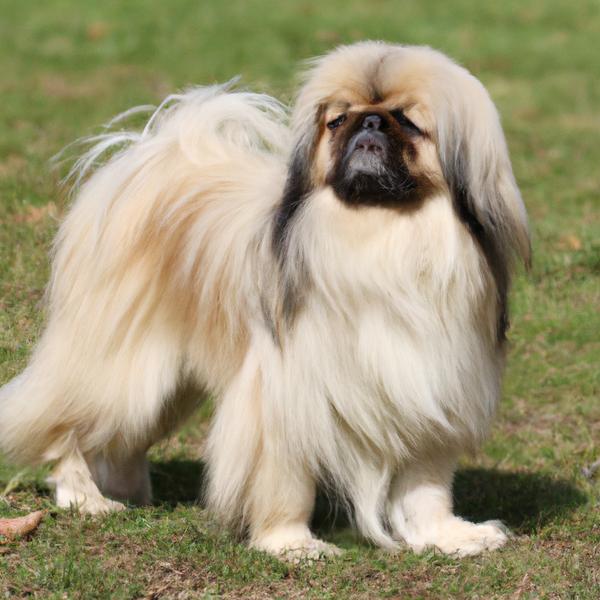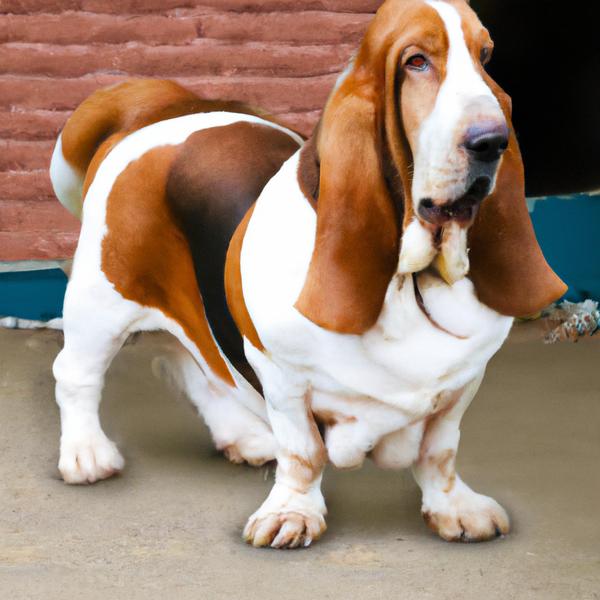Pekingese vs. Hush Basset: Breed Differences and Similarities
Hypoallergenic
Are Pekingeses or Hush Bassets hypoallergenic, or neither?
Unfortunately, neither Pekingese nor Hush Basset are hypoallergenic, which may not make them the best choice for dog lovers who suffer from pet allergies.
Temperament
What are the personalities of Pekingese and Hush Basset dogs?
Affectionate
Good-natured
Opinionated
Aggressive
Intelligent
Stubborn
Playful
Intelligent
Friendly
Affectionate
Devoted
Gentle
Tempered
Sweet
Tenacious
Trainable
Quiet
Faithful
Shedding Level
Do Pekingeses shed more than Hush Bassets, or which breed sheds more, Pekingeses or Hush Bassets?
Pekingese or Hush Basset dogs are not heavy shedders, but they will lose a significant amount of hair each year. To decrease the amount of shedding, you can regularly brush your Pekingese or Hush Basset. This will remove loose hair and keep their coat growing in the same direction.
Watchdog Ability
Which dog breed makes a better watchdog, the Pekingese or Hush Basset?
Pekingeses are decent watchdogs - they'll alert their owner if something seems amiss.
Hush Bassets aren't great guard dogs; they tend to just watch without taking action.
Ancestry
What are the origins of Pekingese and Hush Basset breeds?
Unknown
Basset Hound and American Cocker Spaniel
Date of Birth
When were Pekingese and Hush Basset breeds first developed?
8th Century
Unknown
Eye Color Possibilites
What are the eye colors of Pekingese and Hush Basset dogs?
Brown
Brown
Nose Color Possibilites
What are the natural nose colors of Pekingese and Hush Basset?
Black
Black
Brown
Coat Color Possibilites
What are the natural colors of the coat for Pekingese and Hush Basset breeds?
Black
Fawn
Cream
Brindle
Gray
Black
White
Red
Brown
Cream
Pied
Blue
Silver
Sable
Brindle
Coat Length
What is the typical coat length for Pekingese and Hush Basset breeds?
Pekingeses are known for their coat length.
Hush Bassets have medium-length coats.
Coat Density
What is the density of the coat of Pekingese and Hush Basset?
Coat Texture
What is the hair texture of Pekingese and Hush Basset?
Straight
Wavy
Litter Size
What is the usual litter size for Pekingese and Hush Basset?
A Pekingese can have a litter of 13-15 puppies on average. However, it's worth noting that the size of the litters can vary greatly. Factors that can influence litter size include the health of the mother, breeding history, and genetics.
A Hush Basset can have a litter of 6-8 puppies on average. However, it's worth noting that the size of the litters can vary greatly. Factors that can influence litter size include the health of the mother, breeding history, and genetics.
Adaptability
Pekingese and Hush Bassets are known for their adaptability and versatility. They are capable of adapting well to a wide range of lifestyle changes and living environments, making them great companions for families and individuals of all lifestyles.
Health Issues
Between Pekingese and Hush Basset, which breed is more prone to health problems?
Pekingeses typically have low vet costs due to their good health, but it's important to monitor their health and seek vet care when necessary.
While the Hush Basset breed is generally healthy, occasional vet check-ups are still necessary to address any health concerns.
Major Concerns
What are the major health concerns for Pekingese and Hush Basset breeds?
Patellar Luxation
Entropion
Skin Fold Dermatitis
Brachycephalic Syndrome
Exposure Keratopathy Syndrome
Gastric Torsion
Cataracts
Retinal Dysplasia
Seborrhea
Skin Problems
Von Willebrand's Disease
Hypothyroidism
Thrombopathia
Minor Concerns
What minor health issues should be kept in mind when owning Pekingese and Hush Basset?
KCS
Hydrocephalus
Eye Disease
Mitral Valve Disease
Entropion
Ectropion
Intervertebral Disc Disease
Corneal Erosion
Glaucoma
Phosphofructokinase Deficiency
Bleeding Disorder
Occasional Tests
What occasional tests are recommended for Pekingese and Hush Basset breeds?
Eye
Knee
Heart
X-Rays
Eye Examination
Physical Examination
Respiratory Tests
Blood Test
Dna For Phosphofructokinase Deficiency
X-Rays
Eye Examination
Physical Examination
Skeletal Exam
Energy
How do the energy levels of Pekingeses and Hush Bassets compare?
Pekingese and Hush Basset breeds may be a good choice for those who prefer a more relaxed lifestyle. They tend to have a lower energy level than other breeds of dogs.
Social Needs
Pekingese vs Hush Basset social needs comparison
Pekingese has average social needs and is less independent than other breeds.
Hush Basset has above average social needs and thrives with interaction with humans and other dogs.
Exercise Needed
Pekingese vs Hush Basset exercise need comparison.
Pekingeses require minimal physical activity for a healthy lifestyle.
Hush Bassets need moderate physical activity and are great for families and active individuals.
Sleeping Need
Which of the two sleeps the most/least: Pekingese or Hush Basset?
Pekingeses are known for their relaxed and calm nature and enjoy long periods of sleep.
Hush Bassets have moderate energy levels and typical sleep patterns of 12-14 hours per day.
Tendency to Bark
Do Pekingeses or Hush Bassets bark more/less frequently?
The Pekingese is a vocal breed that frequently barks and howls, and may not be suitable for those seeking a quiet companion.
Hush Basset dogs are generally less vocal than other breeds and only bark when necessary, such as to alert their owner or communicate.
Mouthiness
Mouthiness Comparison: Pekingese vs Hush Basset?
Roaming urge
Pekingese vs Labrador: Running away tendency?
Prey Drive
Pekingese or Hush Basset - which breed has a higher level of prey drive?
Past times
What are some enjoyable activities and ways to keep Pekingese and Hush Basset entertained?
Sniffing, Eating, Laying down, Walk, Training, Walking, Gardening, Tug-of-war, Fetch, Snuggling, Snow play, Socializing, Grooming, Walks
Playing Ball, Cuddles, Running, Walking, Snuggling, Loves walks
Activity Level
Which breed has higher energy, Pekingeses or Hush Bassets?
Pekingeses are low-energy dogs. This breed make a great companion for a relatively inactive person. Pekingese dogs require a few short daily walks, and then they're happy snuggling next to you for the rest of the day.
Hush Bassets are medium-energy dogs and typically enjoy socializing and playing casual or even sustained games of chase with other dogs. They may also have occasional periods of barking or racing around the house.
Tolerance of being left alone
Walks per Week
How many miles should Pekingese or Hush Basset walk each week?
Pekingese and Hush Basset generally need a minimum of 6 miles of walking per week, but it can be increased as long as they are comfortable with it.
Activity per Day
Do Pekingeses or Hush Bassets require more exercise?
In general most Pekingeses usually need at least 20 minutes of exercise daily. This can be spread across the day and include all sorts of high-energy activities, like walking, running and playing.
In general most Hush Bassets usually need at least 45 minutes of exercise daily. This can be spread across the day and include all sorts of high-energy activities, like walking, running and playing.
Grooming
Which breed is easier to maintain in terms of grooming, Pekingeses or Hush Bassets?
Pekingeses have high grooming needs, requiring regular trims and professional grooming assistance to keep their coat healthy.
The Hush Basset requires an average amount of grooming compared to other breeds.
Brushing Frequency
What is the recommended brushing frequency for Pekingese and Hush Basset dogs?
Pekingese should be brushed at least once a week. Of course you can give them more frequent brushes if you find that they are still shedding a lot
Ideally, Hush Basset should be brushed at least 2 or 3 times a week (preferably daily) improve shedding.
Brushing Tools
What brushing tools are used for Pekingeses and Hush Bassets?
Slicker Brush
Comb
Scissors
Nail Clipper
Pin Brush
Slicker Brush
Dematter
Nail Clipper
Cups
How much food should be given to Pekingese or Hush Basset in cups?
For an average 8-14 pound (4 - 6 kg) Pekingese feed 1 cups daily. But, keep in mind, the amount you feed is going to be dependent on the quality of the food you are feeding.
For an average 25-65 pound (11 - 29 kg) Hush Basset feed 2.5 cups daily. But, keep in mind, the amount you feed is going to be dependent on the quality of the food you are feeding.
Daily Cost
Which breed has a higher daily cost, Pekingese or Hush Basset?
The average cost of a Pekingese is somewhere $1.10 - $1.40 per day.
The average cost of a Hush Basset is somewhere $1.70 - $2.50 per day.
Monthly Cost
Which breed has a higher monthly cost, Pekingese or Hush Basset?
The average per month expenses of a Pekingese is between $35 - $42. This makes an average of $420 - $504 per year. It will be on the higher side when the dog is still small because it will need more frequent visits to the vet, shots.
The average per month expenses of a Hush Basset is between $50 - $76. This makes an average of $600 - $912 per year. It will be on the higher side when the dog is still small because it will need more frequent visits to the vet, shots.
Intelligence
Comparing Intelligence: Pekingeses vs Hush Bassets
Pekingese is an independent and stubborn breed with low obedience intelligence, making training a test of patience.
Hush Bassets are average in obedience intelligence but have a high IQ and may cause trouble if left unsupervised.
Sensitivity Level
How do Pekingese and Hush Basset compare in sensitivity?
Pekingeses are adaptable and resilient, making them ideal for those seeking a less sensitive pet.
This breed is sensitive to its environment and best suited for patient and understanding families with a consistent routine.
Affection Dependance
Which is the more affectionate dog breed: Pekingese vs Hush Basset?
Apartment Friendly
Which breed is more apartment-friendly: Pekingese or Hush Basset?
Pekingeses make excellent apartment dogs, being fairly active indoors and not requiring a yard.
Hush Bassets are good apartment dogs as long as they get enough exercise and stimulation outside of the apartment.
Child Friendly
Do Pekingeses or Hush Bassets have a friendlier temperament towards children?
Pekingeses are not suitable for children.
Hush Bassets make excellent family pets for kids due to their gentle, protective nature and calm temperament.
Senior-friendly
Which dog is more suitable as a pet for the elderly - Pekingese or Hush Basset?
Cat Friendly
Do Pekingese or Hush Basset breeds have a better compatibility with cats?
Pekingeses and Hush Bassets are very cat friendly dogs. They generally make good companions for cats.
Dog Friendly
Which breed is more sociable with other dogs: Pekingese or Hush Basset?
Pekingeses are average in their friendliness towards other dogs, and socialization can help.
Hush Bassets are generally very friendly towards other dogs, with a happy and affectionate temperament.
Pet friendly
How do Pekingese or Hush Basset dogs interact with other pets?
Stranger Friendly
Which breed is more friendly with strangers: Pekingese or Hush Basset?
Pekingeses are averagely friendly around strangers but benefit from early socialisation.
Hush Bassets are friendly but may bark at strangers, and training is easy due to their intelligence.
Playfulness
Which breed is more playful between Pekingese and Hush Basset?
Pekingeses are not very fond of playing and prefer other activities.
Hush Bassets have an average level of playfulness, enjoying playtime like most dogs but not excessively so.
Trainability
How do the trainability levels of Pekingeses and Hush Bassets compare?
Pekingese and Hush Basset dogs are known for their ease of training and ability to learn quickly, making them a popular choice for pet owners and trainers alike.
Compare Pekingese with other breeds
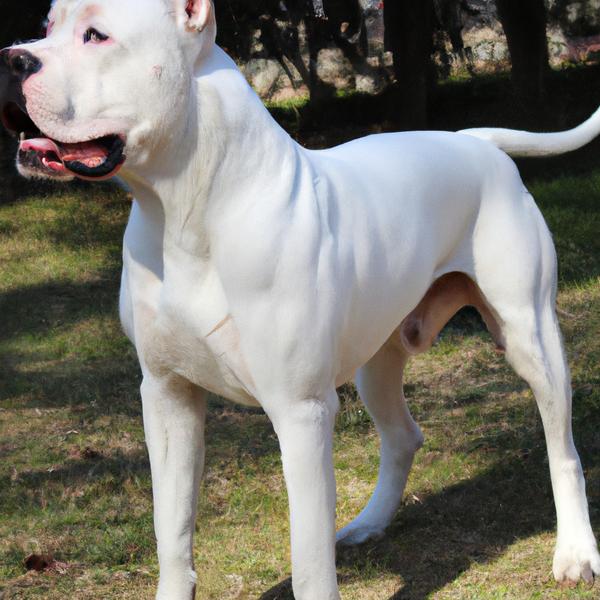
Dogo Argentino
Pekingese vs Dogo Argentino
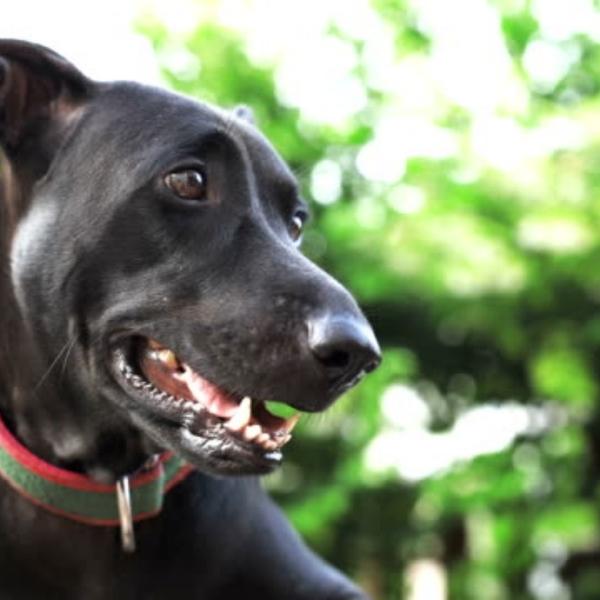
Sheprador
Pekingese vs Sheprador
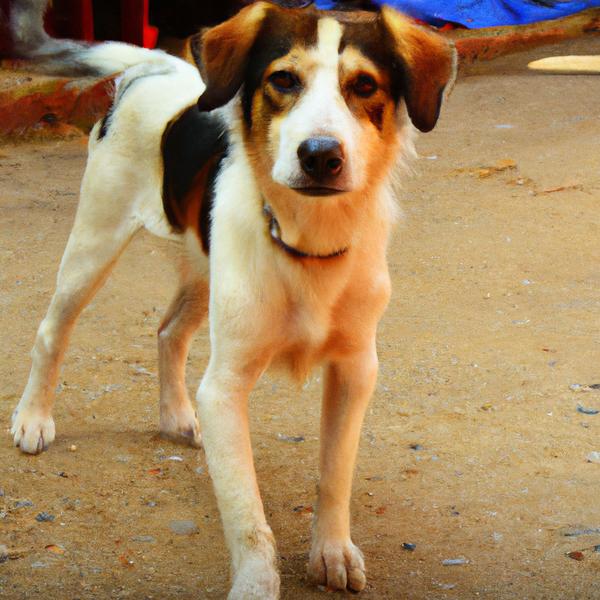
Wheagle
Pekingese vs Wheagle
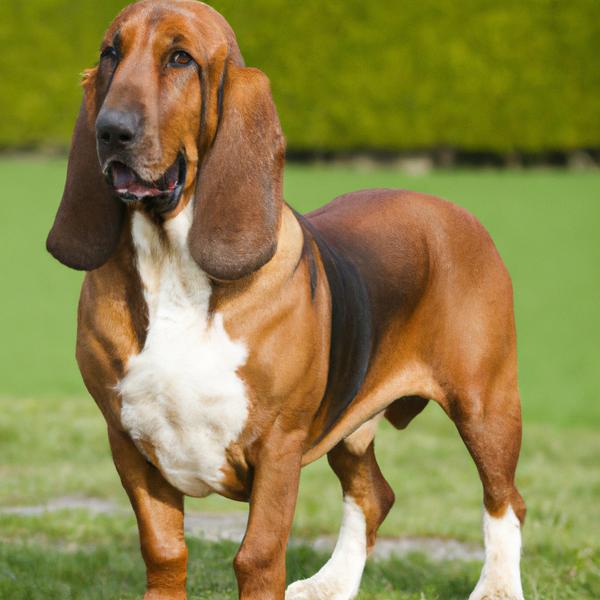
Irish Bostetter
Pekingese vs Irish Bostetter
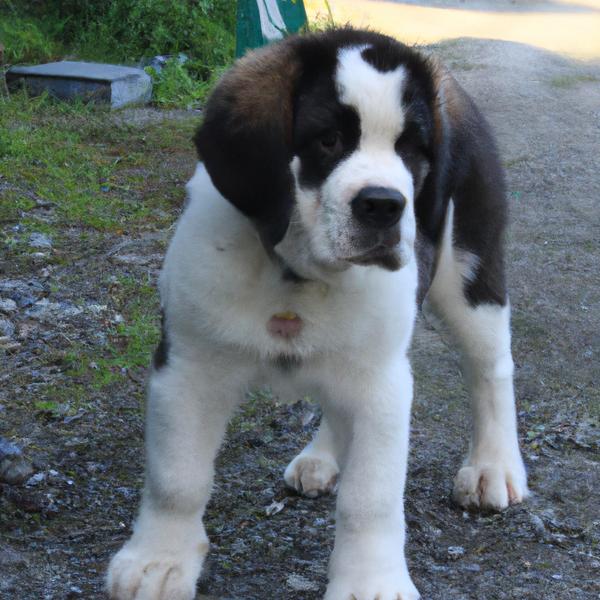
Mini St. Bernard
Pekingese vs Mini St. Bernard
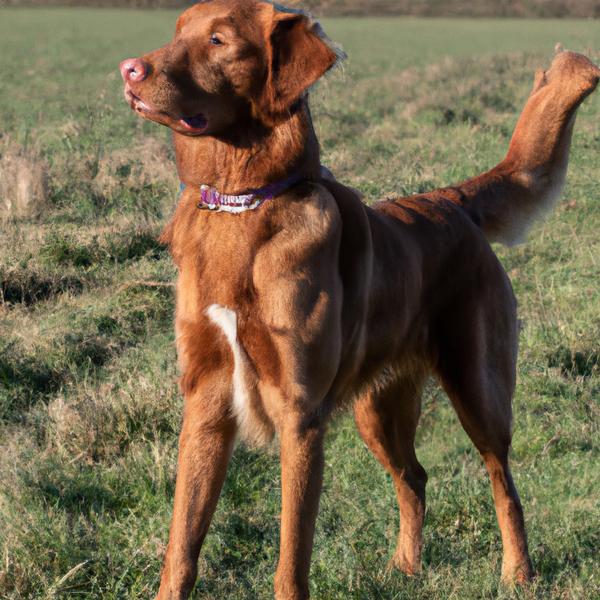
Chatham Hill Retriever
Pekingese vs Chatham Hill Retriever
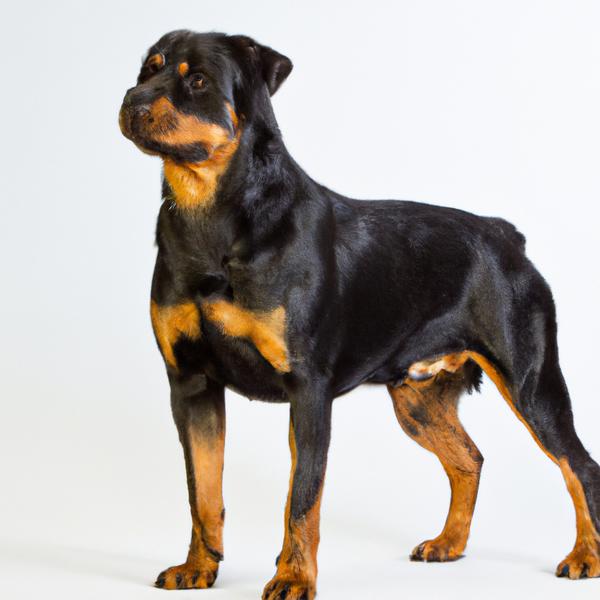
Rotterman
Pekingese vs Rotterman
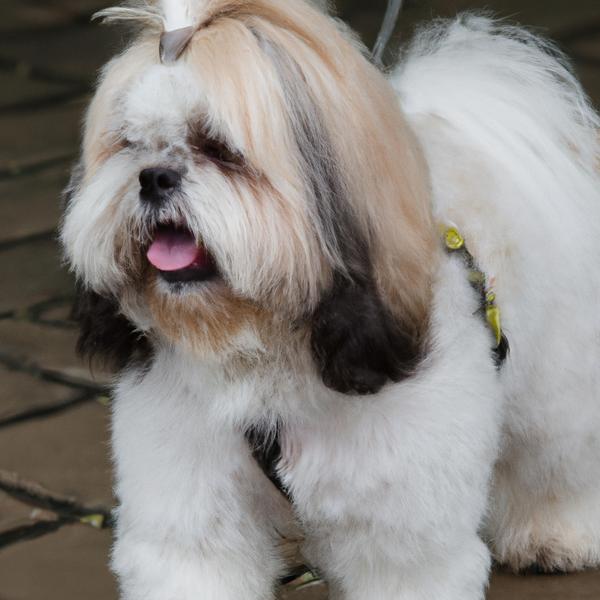
Enga-Apso
Pekingese vs Enga-Apso
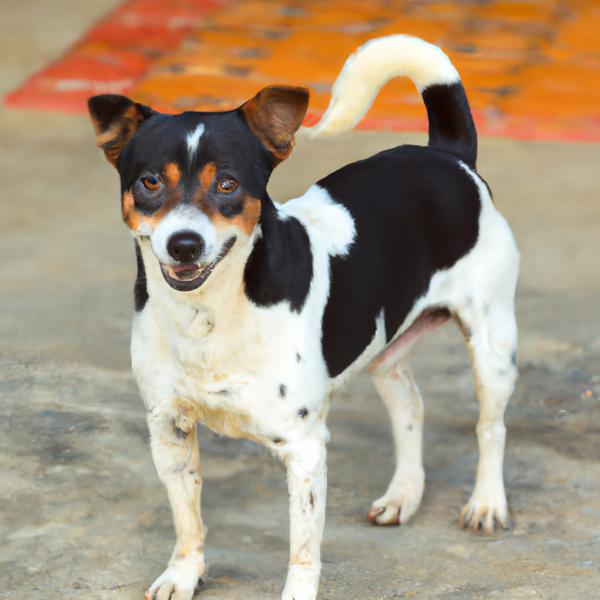
China Jack
Pekingese vs China Jack
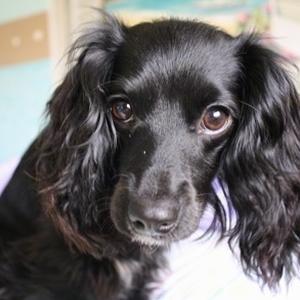
Docker
Pekingese vs Docker
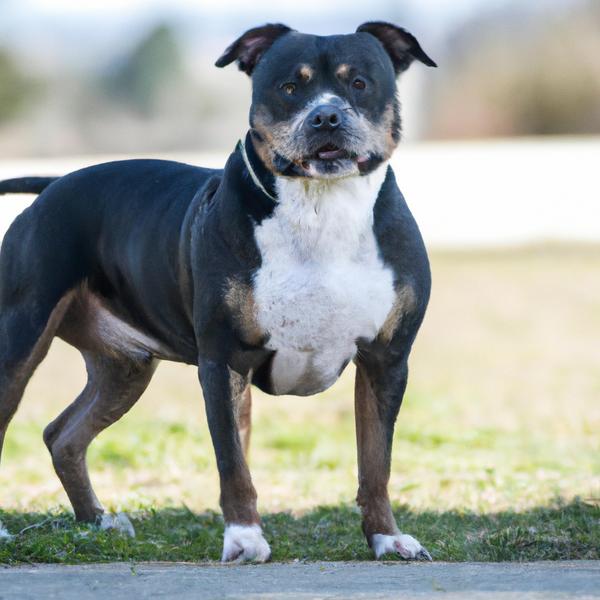
American Bullweiler
Pekingese vs American Bullweiler
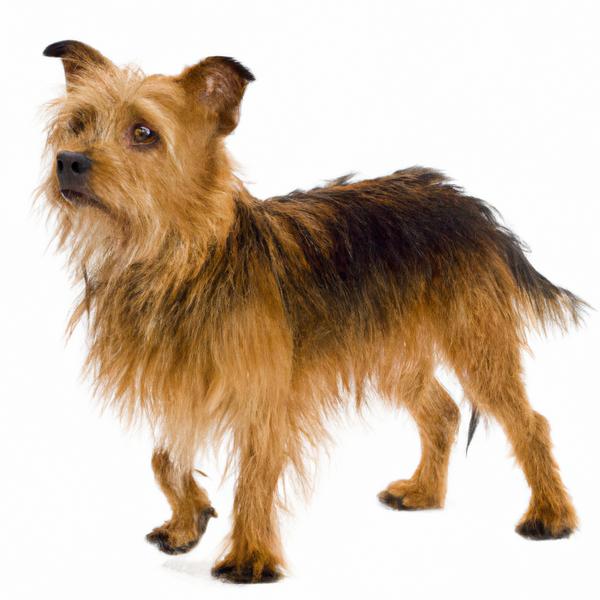
Aussie Silk Terrier
Pekingese vs Aussie Silk Terrier
